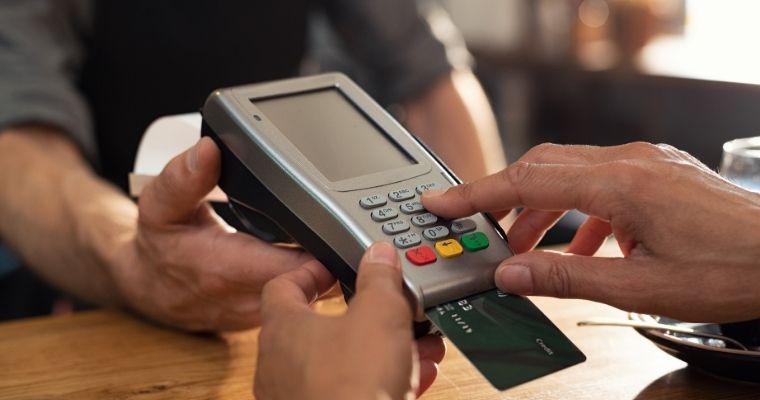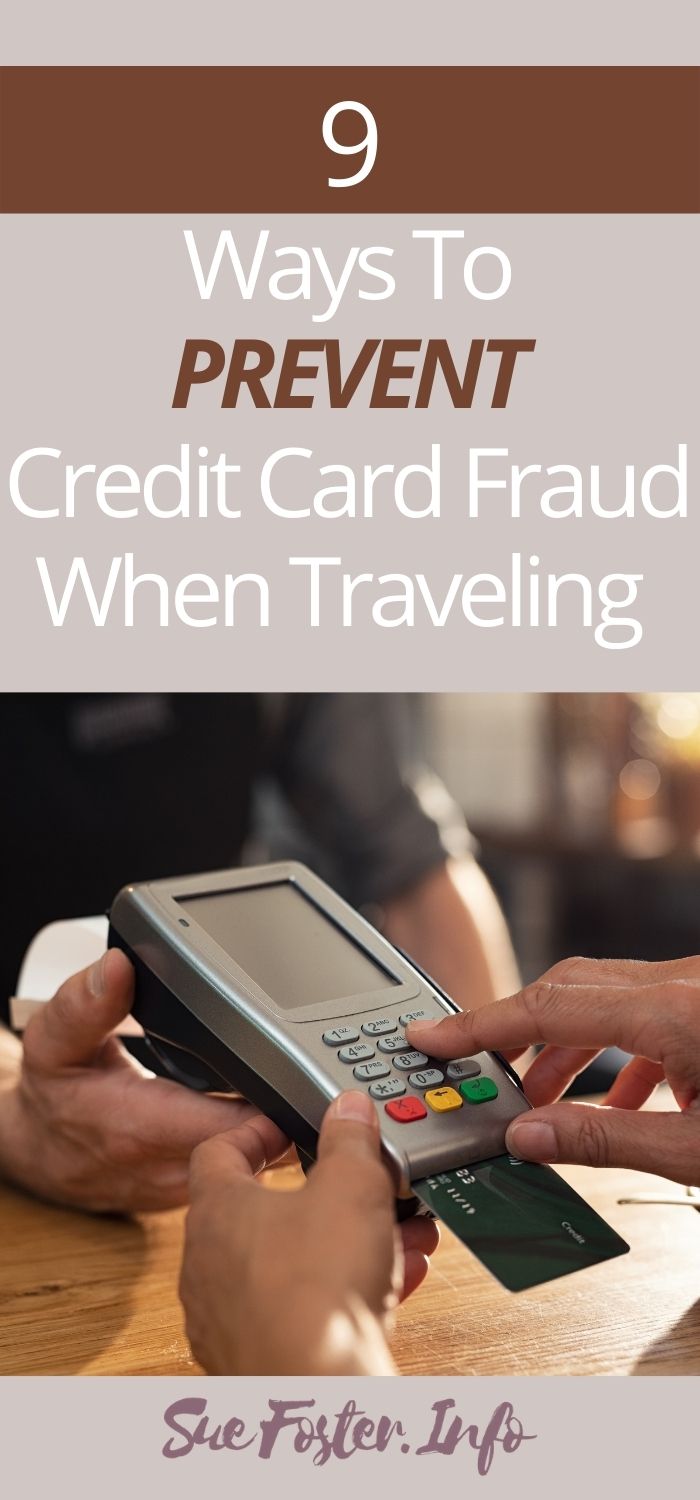One of the things you typically bring with you when you travel overseas for business or pleasure is a credit card. This piece of plastic allows you to purchase what you need easily without carrying around cash in your wallet.
Although credit cards are convenient, they aren’t impervious to theft and fraud. Scammers, for instance, could use devices and techniques to capture your credit card number, personal information and other sensitive details.
You can’t always prevent fraud from happening, but you can take steps to minimize the potential misuse of your bank cards while you’re out of the country. Here are nine ways to avoid falling victim to credit card fraud:

1 Notify Your Bank or Credit Union Before Going Overseas
If your banking institution notices you’re beginning to rack up huge purchases outside your country, their fraud detection software may activate and place your credit card on hold. Before you board your flight, get in touch with your card issuer. Let them know where you’re going and how long you’ll be staying out of the country.
2 Bring Only a Few Credit Cards
If you have several credit cards on your wallet, leave behind most of them when you go overseas. Just take a couple of cards with you and you’re all set. By bringing just two cards, you only need to make a couple of calls (or just one if both cards belong to the same issuer) should they become lost or stolen.
Carrying one or two credit cards is also good for your budget. Keeping track of your expenses is a lot easier when you’re working with just a couple of cards.
3 Use an RFID-Blocked Wallet
Scammers these days are becoming more high tech in accessing your credit card or hard-earned money. Some criminals don’t need to physically look at or touch your bank cards to access your funds and personal information. Instead, they use an RFID scanner to obtain your credit card details. You could prevent this from happening by storing your bank cards inside an RFID-blocked *wallet or *purse. This stops the scanners from working the way into your cards and stealing your money or personal information.
4 Stay Away from Suspicious-Looking ATMs
Some countries still prefer cash as the primary mode of payment. If you need to make a cash advance using your credit card, you’ll want to steer clear of shady-looking ATMs. If the front of these machines appear dislodged, broken or out of place, don’t use them. They may have card skimmers installed, which can collect your credit card data.
As much as possible, use ATMs from major banks or reputable financial institutions. Also, try to keep your withdrawal transactions at a minimum when you’re out of the country.
5 Avoid Connecting to Unsecured Wi-Fi Networks
Some airports, coffee shops and other public places offer free but unsecured Wi-Fi to help you stay connected. If you’re going to connect to these networks, tread carefully. Some hackers create fake Wi-Fi hotspots to access your online accounts, steal your personal data and use your credit card. If possible, look for areas that offer secured Wi-Fi.
6 Check Your Card Activity Regularly
You should check the transactions on your credit card even if it’s still in your possession. Connect to a secured network and look at the card activity for each day. Alternatively, you could dial the 800 number printed on the back of the card and ask for a list of recent charges on your account.
7 Report Card Fraud and Losses As Soon As Possible
If you lost your credit card or believe that scammers have compromised your account, contact your card issuer as soon as possible. Many financial institutions have 24-hour customer support lines and toll-free numbers to further assist you.
8 Set Transaction Alerts
Some card issuers or banks will let you create email and text notification alerts letting you know that you’ve reached a predetermined threshold on your spending. This is useful should a criminal steal your credit card information and use it to make unauthorized, big purchases.
9 Keep an Eye on Your Credit Card
Don’t let your card leave your sight as much as possible. If you’re going to give your card to someone, such as a cashier, watch your card. Some unscrupulous shop clerks and restaurant staff snap a photo of your card or use a skimming device to collect your credit card information without your consent. If you’re not comfortable handing over your card to a particular store clerk, use cash instead.
Protect yourself against credit card fraud while you’re out of the country. Following these best practices will help you enjoy your time overseas, as you’re taking measures to stop criminals from using your money and personal data.


